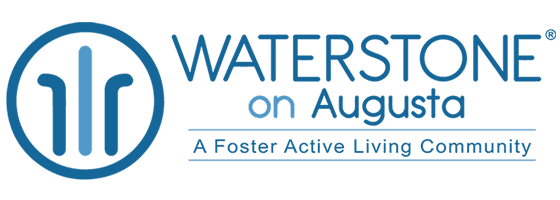Chickenpox is one of the most common childhood illnesses. In fact, studies show that up to 95 percent of the adult population contracted chickenpox under the age of 18. If you’ve had chickenpox, you know that it’s bothersome – and very itchy – but fairly innocuous. However, if you had chickenpox as a child, you may be at risk for a more serious condition: shingles. Individuals over the age of 60 have the highest chance of developing shingles – a condition that can be extremely painful, leading to several complications. Fortunately, there are ways of preventing and treating shingles in the elderly.
Shingles in the Elderly
Causes of Shingles in the Elderly
If you had chickenpox as a child, you have the varicella-zoster virus (VZV) in your body. VZV causes both chickenpox and shingles. As you get older, your immune system declines slightly – making it harder to fight off infection and easier for shingles to develop. The declining immune system, combined with stressful life events and co-morbid conditions like cancer, creates a rich environment for shingles. That’s not all: These factors also make shingles patients more likely to develop a condition called post-herpetic neuralgia, which leads to long-term pain after shingles has cleared.
Shingles Symptoms
Shingles can start with a rash and quickly develop into more severe symptoms. If you have a mysterious rash or any of the following symptoms, ask your doctor if you might have shingles:
- Localized burning, itching, tingling, or other unusual sensitivity of the skin
- A red rash in the same location as the burning or itching, typically near the trunk or hip area
- Headache
- Fever
- Clear or yellow blisters in the rash area lasting for up to three weeks
Preventing Shingles
Shingles is far from inevitable. If you’ve had chickenpox, talk to your doctor about Shingrix, a highly effective vaccine against shingles. Shingrix is available for people 50 and over, and it is more than 90 percent effective at preventing shingles. The CDC recommends that adults age 50 and over get doses of Shingrix, two to six months apart.
Treating Shingles
If you’ve been diagnosed with shingles, don’t despair: there are several treatment options to help you feel better faster. First, your doctor may prescribe oral anti-viral medications such as acyclovir (Zovirax), famciclovir (Famvir), or valacyclovir (Valtrex). Each of these can help decrease shingles pain. However, these medications typically only work when taken within 72 hours of developing a shingles rash, so you’ll need to move quickly when you notice shingles symptoms. There are also several measures you can take at home to help speed up your recovery:
- Get plenty of rest and try to avoid stressful situations.
- Eat well-balanced meals that include fruits, vegetables, and whole grains.
- Check with your doctor to get clearance for simple exercises like stretching or walking.
- Apply a cool washcloth to your blisters to help dry them out.
- Take an oatmeal bath or use calamine lotion.
- Try to relax by watching TV, reading, or talking with friends.
- Wear soft, loose-fitting clothing.
- Avoid scented soaps or shampoos, which could irritate the skin.
_____
Shingles in the elderly can lead to frustrating pain and ongoing discomfort via post-herpetic neuralgia. However, there are several prevention and treatment methods to help you avoid long-lasting pain. Talk to your doctor about the shingles vaccine, and keep an eye out for any symptoms of shingles.
Are you looking for a premier assisted living and memory care community in the heart of downtown Greenville, South Carolina? Come visit us at Waterstone on Augusta. Our community is both relaxing and elegant, and we strive to enhance the quality of life of the seniors we serve through teamwork and unity. To learn more about our amenities and to view our lovely community, please schedule a tour online or call us today at 864-605-7236.

